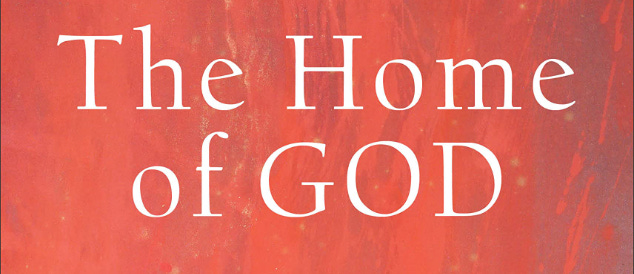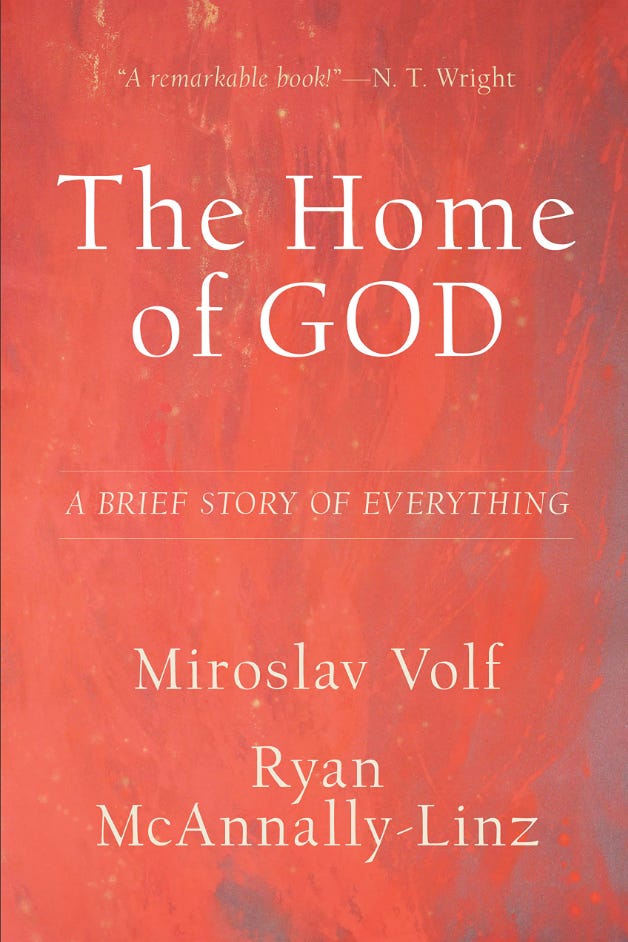
According to Miroslav Volf and Ryan McAnnally-Linz, The Home of God: A Brief Story of Everything, the great paradox of John’s Gospel “is that the Word, the insuppressibly lively abiding source of all created life, came not just to dwell among humans as YHWH did among the Israelites but to die a painful and demeaning death on the cross. John’s Gospel of life culminates in death.” His death, then, is “not just a regrettable consequence” but “an essential part of the… mission.” Jesus came to die.
This death is not just an act of injustice but God “gave” his Son and the Son “gave” his life (John 3:16; 6:51; 10:18). The death of Jesus in John is the result of God’s love for the world so the world might be redeemed and God can make a home with us.
On the way of the cross Jesus is depicted as the good shepherd but understood as “the impostor god of a false Israel.” A blasphemer, a lawbreaker, a victim of “sacred violence” (vs. his “radical mercy”). He speaks to Rome as the true witness about the truth of God. Jesus comes for an “alternative way of organizing social life.” For the Roman authorities Jesus must die over his three-fold commitment: God of love vs. Caesar, truth vs. power, self-sacrificial love vs. violent force.
But Jesus does not alter Rome’s or Jerusalem’s power structures; he dies “serving life.”
The cross in John’s Gospel condemns Rome’s “dominant forms of life and sociality.” A central metaphor for Jesus then is the Lamb of God (1:29, 36), which taps into the passover of Exodus 12, the Aqedah of Genesis 22, and the servant of Isaiah 53. “Here is God in the flesh acting to remove the sin that keeps the world in its un-homed state.”
On the cross, and here he taps into both John 1:14 and Exodus 34:6-37’s clear connection of God’s mercy, grace, and love to forgiveness, Jesus bears sin, the sin of rejecting God and the revelation of God in Jesus Christ. And he dies for sins that humans commit against other humans.
By connecting John 1:14 to creation and incarnation and bearing sin all three are aligned in Johannine theology.
John has no theory of atonement but these themes come to the forefront of the stage: the Lamb’s death procures bearing away of sins; the Lamb’s death is not about God’s wrath but God’s love; he is not just an innocent victim but he lays down his life for others (10:18). So the Lamb’s death is “God and nobody but God taking away the sin of the world.”
Yet, the Lamb’s death, which must be connected to Easter, is not simply about removing sin but of giving life, eternal life, which begins now and his not just forever-ness.
Here Volf and McAnnally-Linz enter their sweet spot. The life Jesus provides as the Lamb of God is a “life that goes well, is lived well, and feels as it should.” It is “an unending fullness of true life in all its dimensions.”
Their project ultimately ties the Exodus and cross redemption to a human life as the life that is flourishing in this world, a world created by God and designed by God for a home with humans.
Again, the Lamb’s death is about life and the love of God. The whole of Jesus’ life is a life of love (13:1), and his death conquers the fear of death, his death serves life, and it is a victory of divine love for humans.
So God can dwell with humans.
Theology is in this study turned from systematics as traditionally done toward a biblical-systematics shaped for a flourishing life in this world. And the cross is not an embarrassing reality or even an unfortunate tragedy but the heart of what God does to bring life and love to home with God.

















“Very interesting!” Once again recalling the voice of Sgt. Schultz in Hogan’s Heroes. This time, as the character himself. Schultz seemed to have the, proverbial, “wool” pulled over his eyes. However, he also seemed to respect and honor the “good fight” of the POW’s. Which points to 2 Timothy 4:7 and 1 Timothy 6:12, and those references to fighting the good fight.
Jesus fought the good fight much differently than the powers-that-be did then, or at any time throughout history, even today!
Even today, those who try to “fight the GOOD fight, are dismissed by those who, perhaps, have power, and the “zombies” who follow along. The continuing dichotomy? Those who follow earthly power challenged by those who follow the Good Way, Truth, and Life with Jesus!